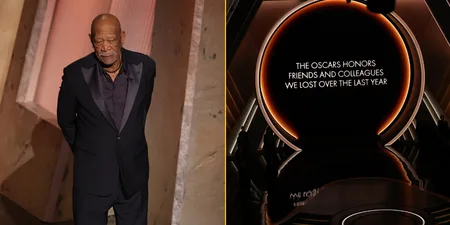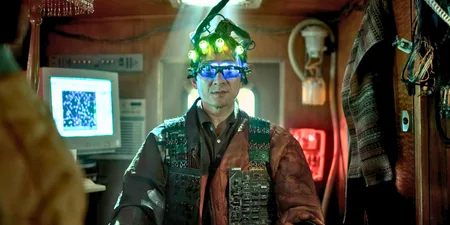Rightly so.
In a movie containing a killer evil clown devouring kids, you wouldn’t think there would be much left over in the book that the film-makers would shy away from.
But anyone who has ever read the book will know about the one infamous scene that wasn’t in the original Tim Curry starring mini-series, and that the makers of the new cinematic version also left out.
We speak, of course, of the Losers Club having an orgy.
Yes. The group of young kids. Have an orgy.
In the book, it is implied that the clown is only hunting down the kids in the town of Derry, so one of The Losers Club comes up with the idea of them all have sex, thereby taking about their own childhood.
Talking to Entertainment Weekly, the new movie’s co-writer Gary Dauberman knew all too well that the scene just wouldn’t work for 2017 audiences:
“Besides Georgie in the sewer, I think it’s the one scene that everybody kind of brings up and it’s such a shame. While it’s an important scene, it doesn’t define the book in any way I don’t think and it shouldn’t. We know what the intent was of that scene and why he put it in there, and we tried to accomplish what the intent was in a different way.”
Dauberman co-wrote the movie based on an original draft by Cary Fukunaga, the director of the brilliant first series of True Detective, who was also originally lined up to direct IT before dropping out of the project in 2015.
This brilliant video-essay goes into the differences in Fukunaga’s draft and the one that eventually went into production, and you can check out part one of that essay below, along with parts two, three and four.
Clips via LowRes Wünderbred
Stephen King did talk about the orgy scene himself years later, when he answered questions about it on his own website:
“I wasn’t really thinking of the sexual aspect of it. The book dealt with childhood and adulthood –1958 and Grown Ups. The grown ups don’t remember their childhood. None of us remember what we did as children–we think we do, but we don’t remember it as it really happened. Intuitively, the Losers knew they had to be together again. The sexual act connected childhood and adulthood. It’s another version of the glass tunnel that connects the children’s library and the adult library. Times have changed since I wrote that scene and there is now more sensitivity to those issues.”






































